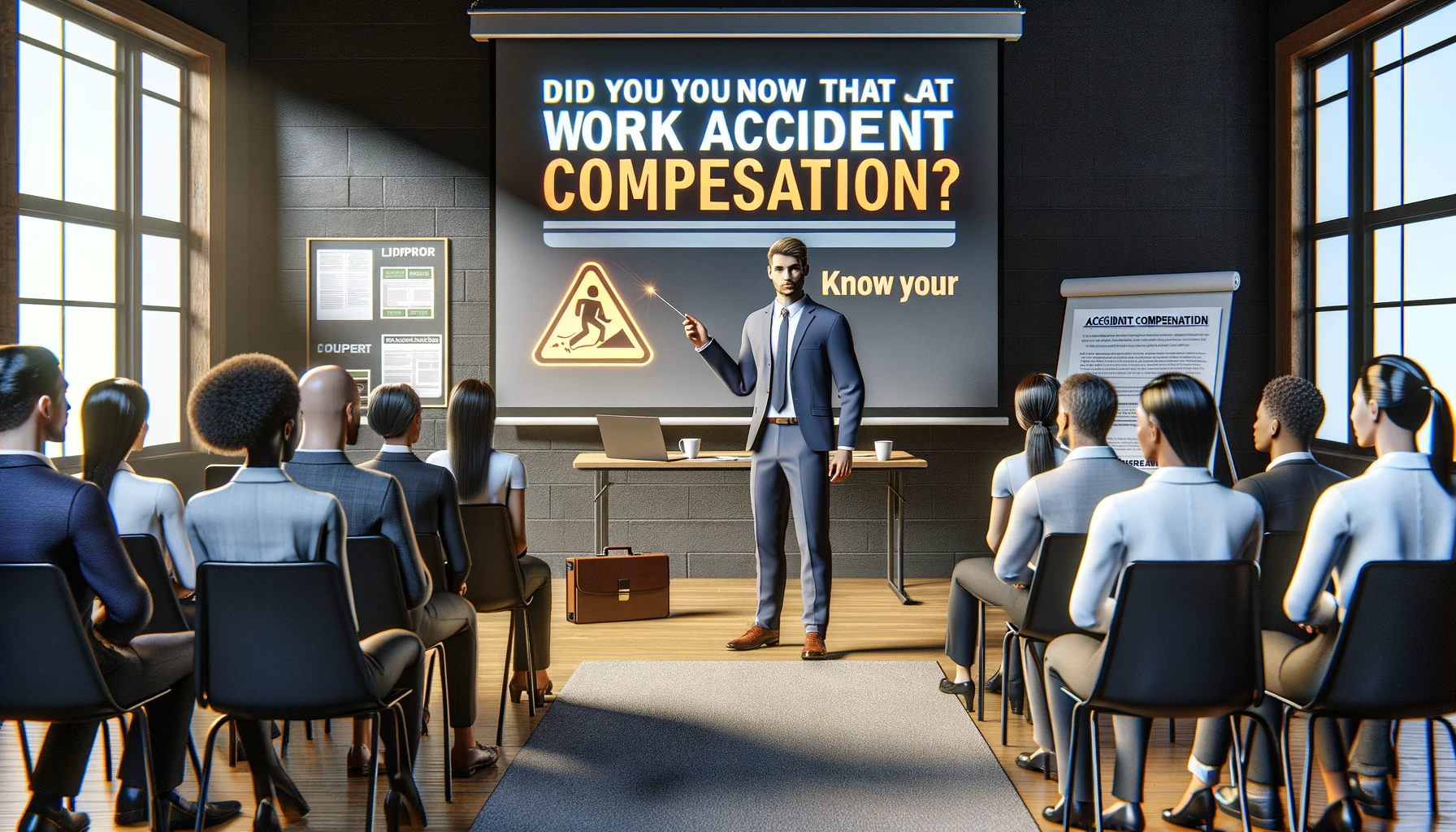Workplace accidents are an unfortunate reality in many industries. Whether it's a slip on a wet floor or an injury from heavy machinery, the impact of an on-the-job injury can be significant. It's crucial to understand what steps to take immediately following an accident and know your rights to ensure you are adequately protected and compensated.
Immediate Steps After a Workplace Accident
If you've suffered a workplace injury, your health is the priority. Seek medical attention immediately, even if the injury seems minor. This not only ensures your well-being but also provides a medical record, which is essential for any future claims. Next, report the incident to your employer as soon as possible. This is the first step in the official documentation process and is critical for workers' compensation claims.Understanding Workers' Compensation
Workers' compensation is a form of insurance that provides wage replacement and medical benefits to employees injured in the course of employment. To be eligible, you must report the injury within the stipulated time frame and follow the specific guidelines set by your employer and the workers' compensation board in your jurisdiction.Workplace Injury Rights
As an employee, you have rights after sustaining an on-the-job injury. You're entitled to seek medical treatment, file for workers' compensation, and, if necessary, pursue legal action against any negligent parties. Employers are also obligated to maintain a safe work environment and cannot retaliate against employees for reporting injuries or filing claims.Reporting Work Incidents
Reporting a workplace injury should be done in writing, providing a clear account of the incident and the injuries sustained. It's important to adhere to the deadlines for reporting, as missing these can jeopardize your claim. Your employer should have a process in place for this, and it's your right to be informed about it.Occupational Safety and Employer Liability
Occupational safety is a shared responsibility, but the primary onus is on the employer to provide a safe working environment. If an employer fails to do so, and an accident occurs as a result, they may be held liable. Understanding where responsibility lies is crucial for any work-related accident procedures.Legal Rights After a Work Injury
After a work injury, it's wise to seek legal advice. A work injury attorney can help navigate the complexities of workers' compensation rights and ensure you receive fair treatment. They can also advise if there's a case for additional compensation beyond what workers' comp provides.Work-Related Accident Procedures
Following a work-related accident, it's important to adhere to the prescribed procedures. This includes reporting the injury, seeking medical attention, and documenting everything related to the incident and your injuries. Keep copies of all medical records, reports, and correspondence related to the accident.Claiming Workplace Accident Compensation
To file a workplace accident compensation claim, you'll need to complete the necessary paperwork and provide evidence of your injury and its impact on your work. The workers' comp claim process can be intricate, so it's advisable to have legal representation or advice to ensure all requirements are met.Navigating the Aftermath of a Work Injury
Dealing with a work injury extends beyond the initial incident. There may be long-term health implications, the need for rehabilitation, and the process of returning to work. It's important to understand your job injury rights throughout this period and take advantage of any support services offered.Conclusion
Suffering a work accident can be a daunting experience, but knowing your rights is the first step toward protecting yourself. Remember, you're not alone, and there are resources and professionals who can help guide you through this challenging time.Look for an attorney who has the right legal resources for your legal needs.
Contact us here on the Warmuth Law website or through our hotline 888-517-9888.













